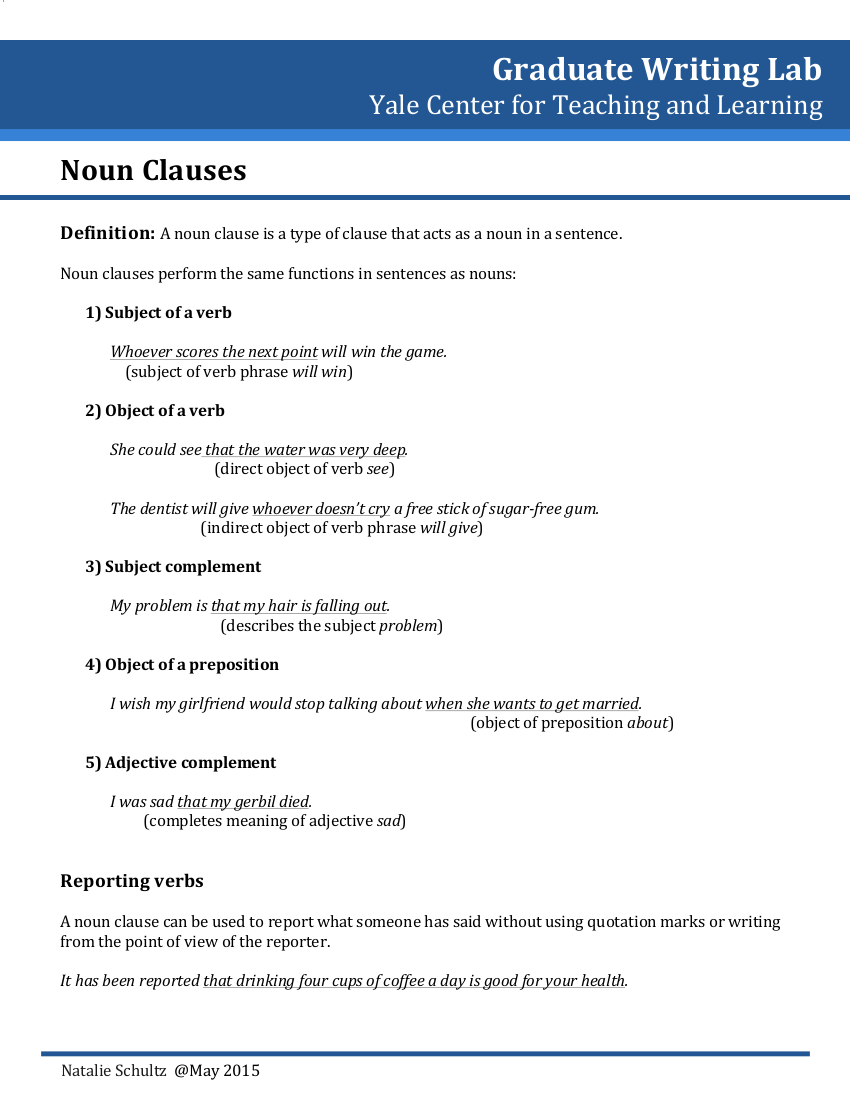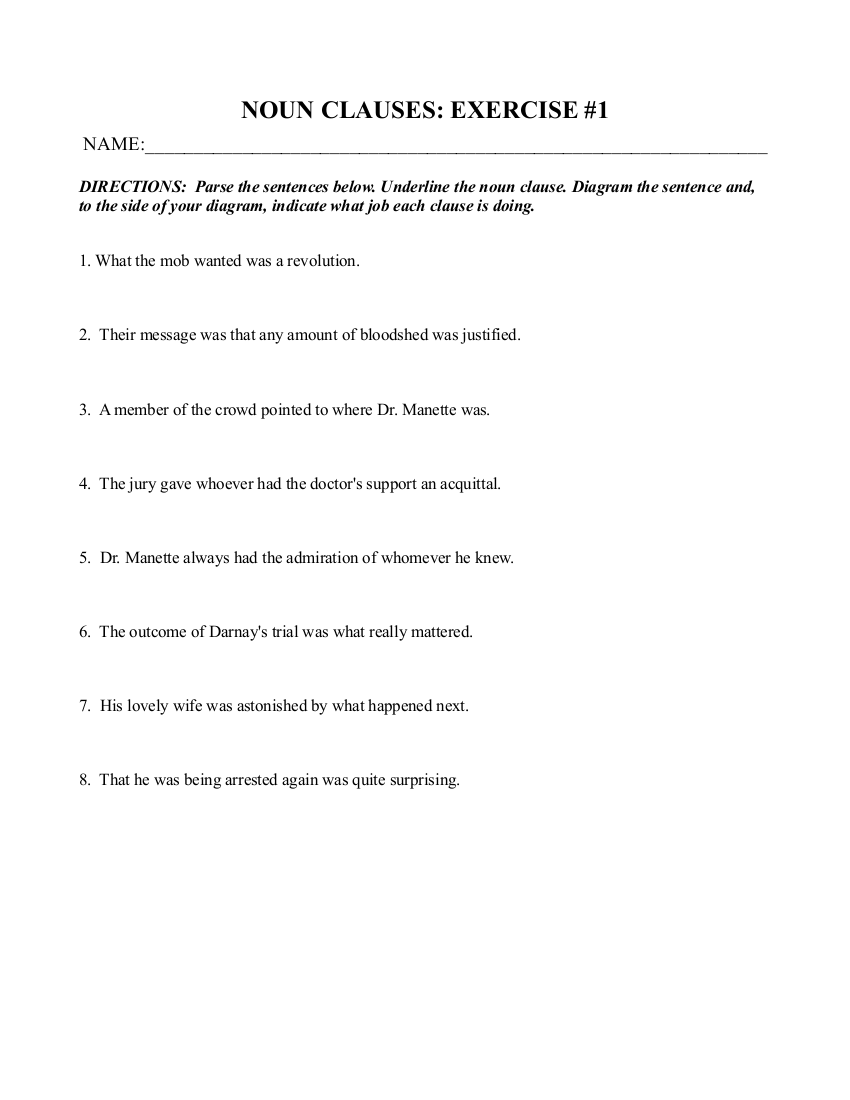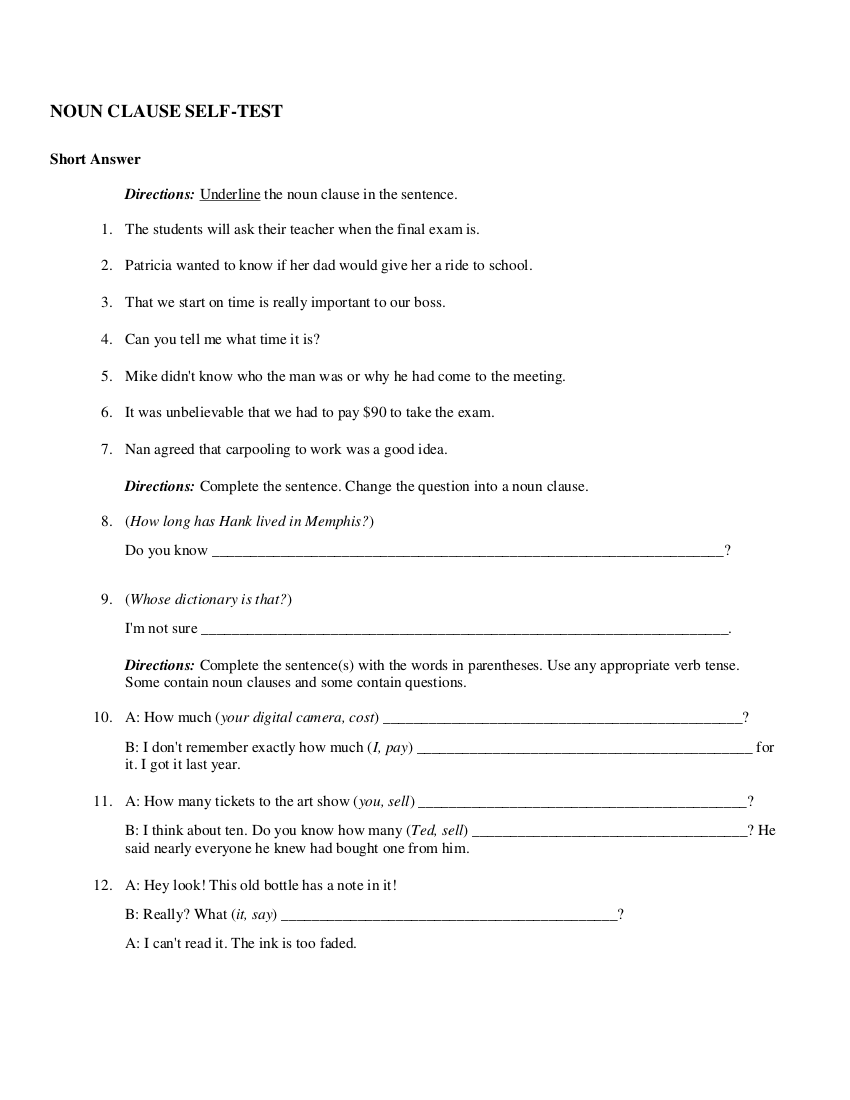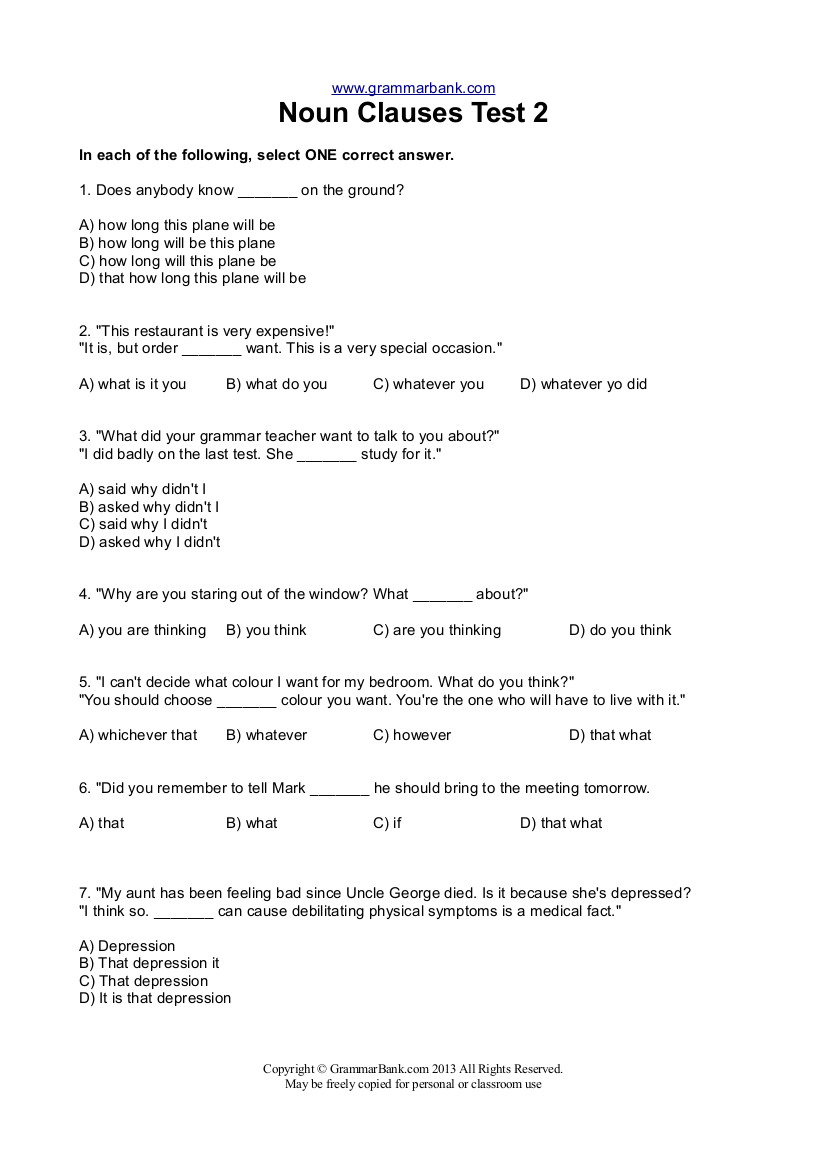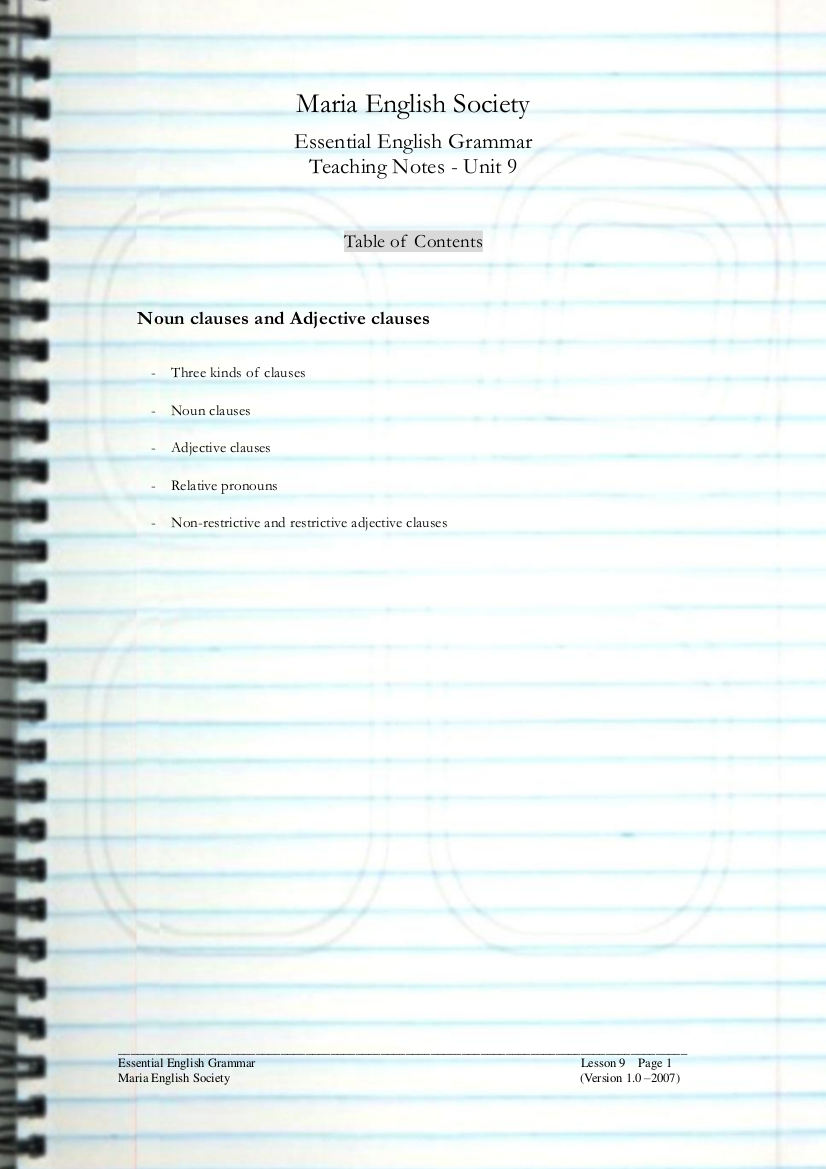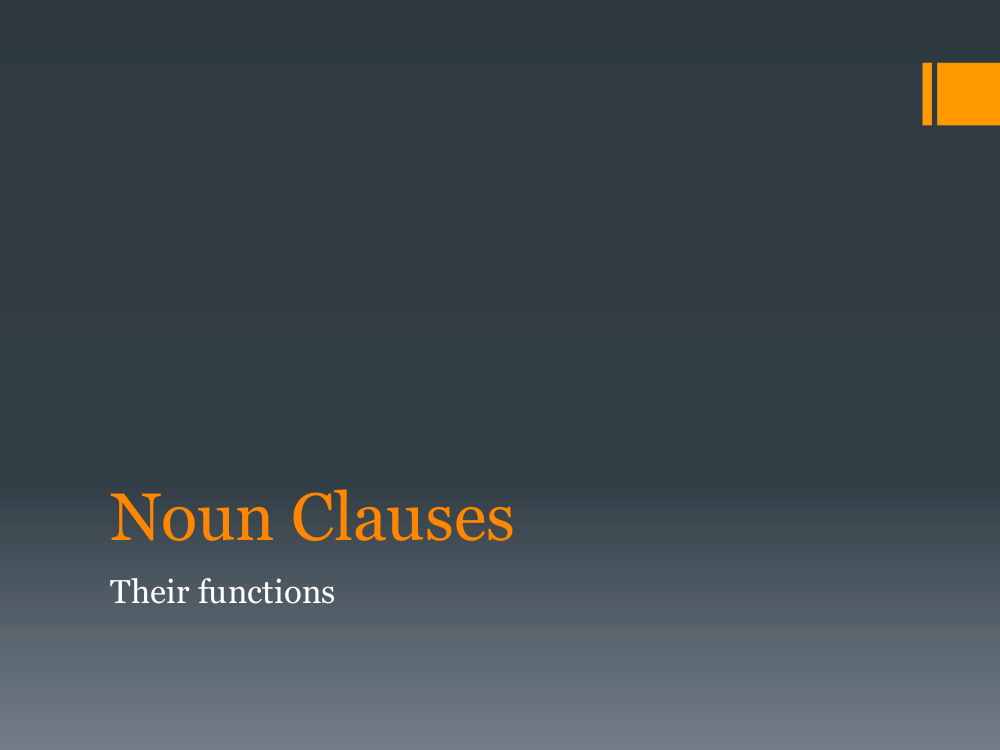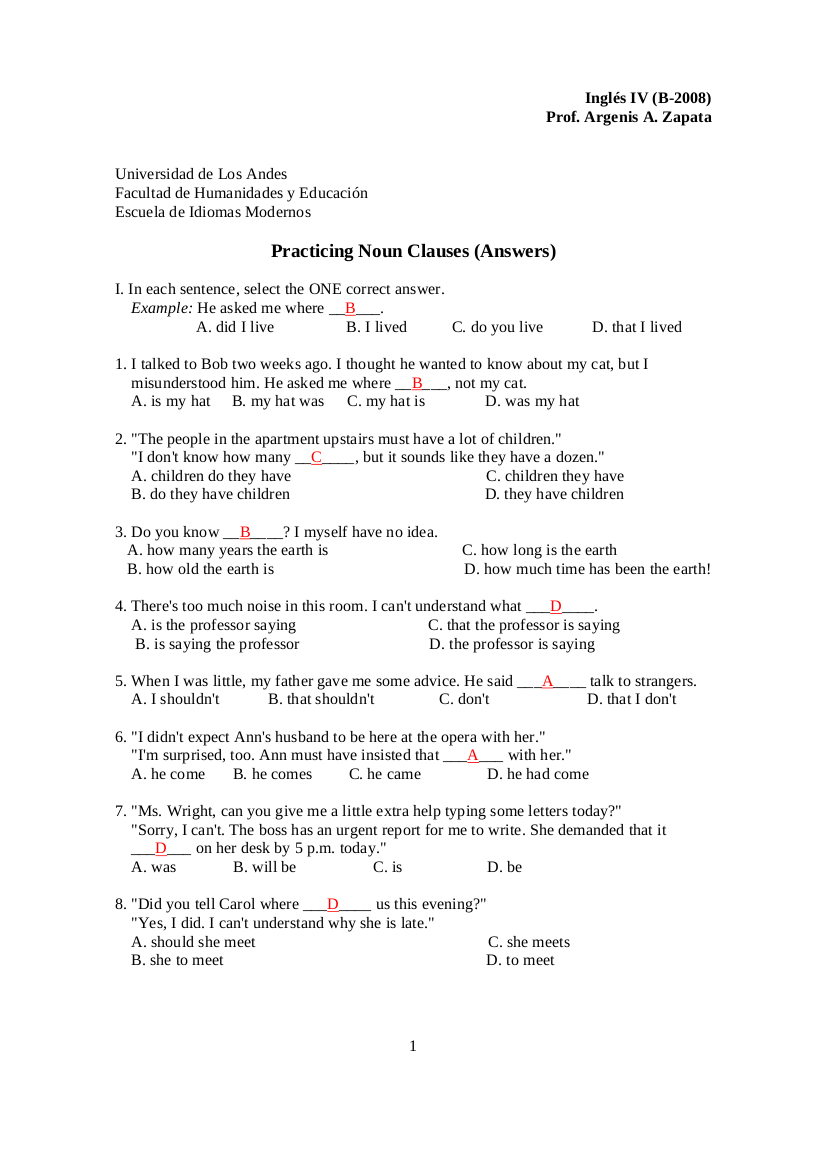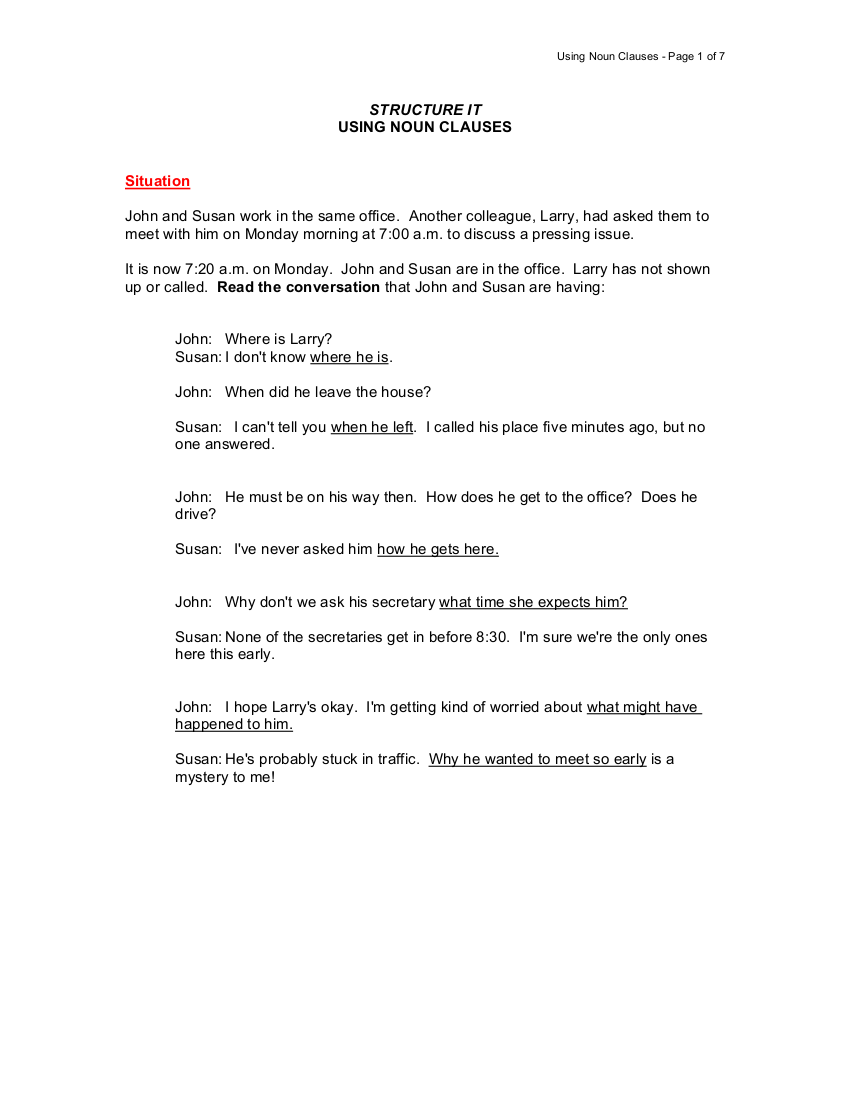9+ Noun Clause Examples
When you write, you make use of sentences, these sentences would develop into paragraphs, and eventually, you will generate full-length writings that you can let others read in order to get your message delivered. But before you reach that stage where you develop longer writings, you will start working with a smaller group of words first which are called clauses.
Getting to Know Noun Clauses
Noun Clause Exercise
Noun Clause Self-Test
Noun Clause Test Worksheet
Noun Clauses and Adjective Clauses
Noun Clauses and Their Functions
Practicing Noun Clauses
Using Noun Clause
What Is a Noun Clause?
A noun clause usually begins with the following words: how, that, what, whatever, when, where, whether, which, whichever, who, whoever, whom, whomever, and why. A noun clause can act as simple subjects, objects (direct objects and indirect objects), predicate nominatives, linking verbs, complements, or objects of a preposition.
How to Use Noun Clauses in Sentences
When writing sentences, it is also important to know that noun clauses play a vital role in it. So to understand the uses and how to tell whether they are noun clauses in the sentence, here are steps to help you with using noun clauses in sentences.
Step 1: Noun Clauses as Subjects in a Sentence
When you see a noun clause at the very beginning of a simple sentence, its function is the simple subject or the verb that comes right after it. An example for this would be like: Whatever happens to my brother is your responsibility. In this sentence, the noun clause acts as the subject.
Step 2: Noun Clauses as Objects in a Sentence
A noun clause that acts as an object of a sentence or verb would come right after the verb or when it is the recipient of the action the subject initiates.
Step 3: Noun Clause as a Complement of the Subject
A noun clause will act as the complement of the subject when it is found right after an intensive verb, that we also refer to as a linking verb. Keep in mind that the complement refers to the subject or when it is the same as the subject.
Step 4: After Verbs and Adjectives in a Sentence
A noun clause will act as the complement of the object particularly when it would follow the direct object. You may also like subordinate clauses.
FAQs
What is a noun clause?
A noun clause is a type of dependent clause that acts as the noun with a purpose to name a person, place, thing, or idea. There are instances wherein we would like to name something but a lone word would not suffice, and that is when we need a noun clause, which is composed of a group of words, in order to name something.
What is the difference between a noun clause and other dependent clauses?
The other types of subordinate or dependent clauses are adjectives and adverbs. When these types of clauses are removed, we will still be left with a complete and understandable independent clause along with a subject and a verb. However, this is not the case for most noun clause because a noun clause is essential for most sentences that once it will be removed, the sentence and the message you want to convey will no longer be understood.
What are the types of noun clauses?
One distinct indicator of a noun clause is that it would always begin with certain words and that is the following words that we also make use of when we formulate questions: who, what, why, where, when, that, which, whoever, whatever, wherever, and whenever.
Make sure that when you will try to identify the noun clause in a sentence, look how the group of words function in that sentence and from that you can judge whether it is indeed a noun clause or some other type of clause or not. We hope that you have gained more insights on writing a noun clause. Should you want to learn more about clauses, you may want to browse through our website.



